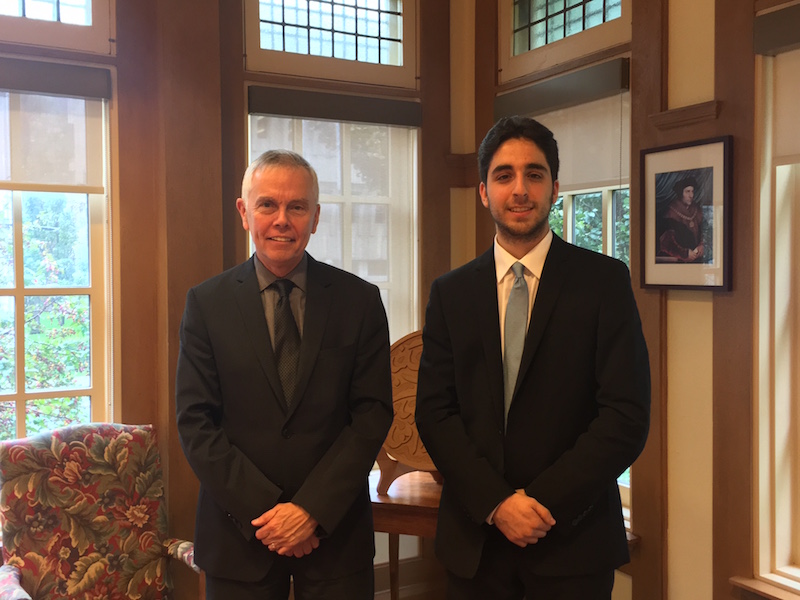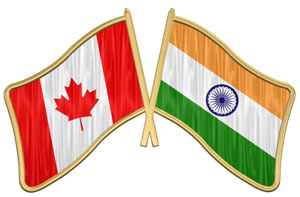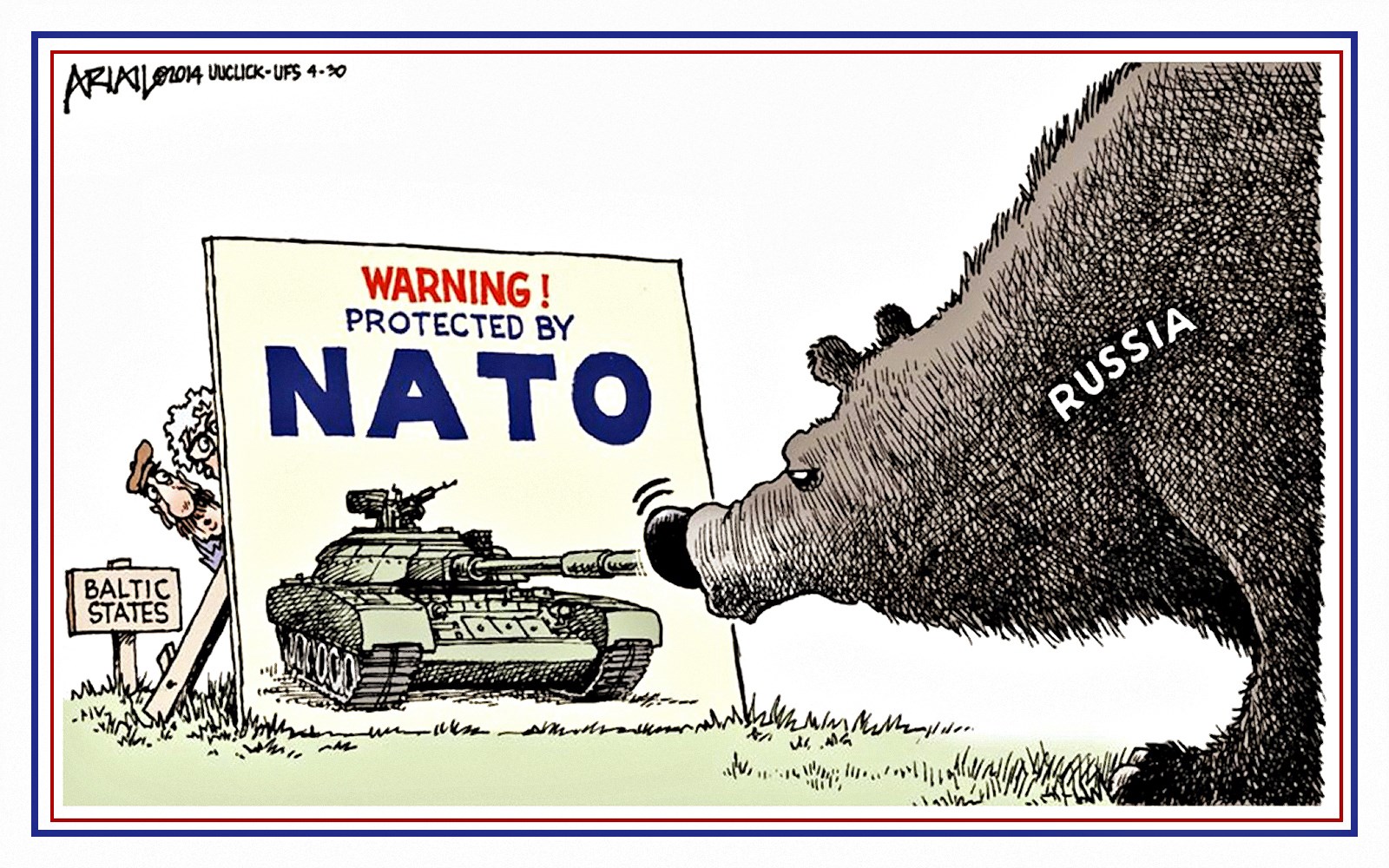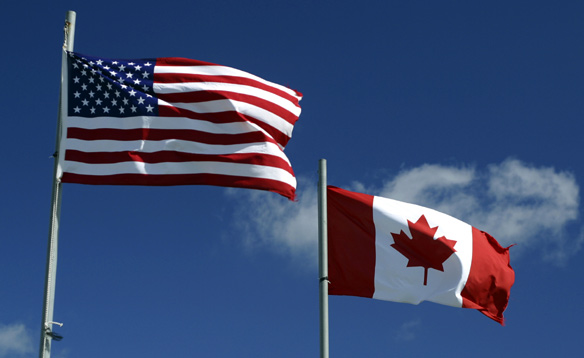You can order David Mulroney’s book here.
See below for an edited and condensed transcription.
Could just start by telling our listeners a little about yourself. How did your family and educational background propel you to embark upon a career in the Foreign Service?
I was born in Halifax and grew up in Toronto. I attended both St. Michael’s College School and the University of St. Michael’s College at the University of Toronto, where I studied English and Philosophy. I wrote the foreign service exam and got in 1981. I had a cousin who was a couple generations older than me and she had worked for what was then called External Affairs in the 40’s and 50’s. She always encouraged me to think about an international life and the world of diplomacy, so I always had that in the back of my mind. My wife was and is keenly interested in international affairs and travel, and so she was also a significant influence. Happily enough I got in ’81, and then had postings in Seoul, Korea, in Shanghai where we opened our office in the mid 80s, in Kuala Lampur in Malaysia, in Taiwan in the unofficial Canadian Office, and finally in Beijing.
In between times I served in various roles including running first the Asia Pacific branch of Foreign Affairs, later serving as Associate Deputy Minister and the Prime Minister’s sherpa to the G8 Summit. I was also the Coordinator on Afghanistan, which was a really interesting time and a time of close work with NATO, and ending up in Beijing.
And you started in 1985 in China?
I did.
So even though you have served in all these different capacities, would it be fair to say that China has probably had the most important effect on you as a diplomat?
I’d say my career was significantly shaped, meaning that the the significant event for me professionally was the rise of China. The China I saw in the mid 80’s was a China that was still in many ways emerging from the Cultural Revolution. The Shanghai then would be unrecognizable to a young person in Shanghai today. So I’ve seen, in my own career, some of the more dramatic parts of China’s rise.
And you actually also published a book, Middle Power, Middle Kingdom: What Canadians need to know about China in the 21st Century. Congratulations by the way, it was very well-received and it recently won the J.W Dafoe Book Prize.
I was very touched about that. I went out to Winnipeg to receive the prize and to meet the Dafoe Committee. As an inspiration I read everything that I could of Dafoe’s own writings on Canadian history and international affairs. It was a very inspiring process for me.
In the book you talk about not only the history of China, your personal experiences, economic and social policy, but you talk about the necessity of having a focused China policy. Would it be fair to say that Canada has been slacking when it comes to our interaction with China?
I think it’s fair to say in terms of our approach to international affairs in general. I think we are used to a world in which the most serious issues of prosperity and security are largely worked out through our relationship with the United States. That leaves us free to choose where to get engaged, almost to dabble where we choose. It might be India one year and then China the next year, or we have a flirtation with Japan, or we realize we have a location in South Africa. But we’re Will-O’-the-Wisps. We’re entering a new world where we can’t afford to do that anymore. I think China is the first of the emerging partners and countries that we have to take particularly seriously and approach in a whole new way.
If we think about the history of Canada-China relations beginning in the 20th century, I suppose Pierre Trudeau is still remembered as the one who opened the door to China?
Very much so. The only time I ever met Mr. Trudeau Sr was in China and I was struck by how impressed Chinese audiences, including very seniors leaders, were by him and by his contribution. What he did essentially was not just create a formula through which Canada could recognize China, he also championed a formula that allowed many other countries to come in and engage the new China of Post-1949 in new ways.
Since that time, China has been an increasingly important market for Canada’s exports, including, as you mention in your book, seafood. How does the transformation of the Canadian seafood industry represent our deepening ties with China?
Well my first experience in government before getting sent overseas, I was sent to a regional office of the Canadian government in St. John’s, Newfoundland. That was a very important experience for me because the Newfoundland fishery, in fact the East Coast fishery, was emerging at a time when we sold fish as a commodity, packed into a block and sold into “McFish” sandwiches. Now we think about our seafood as a high quality product that is associated with Canada; the way Norway and Iceland, for example, market seafood. The way seafood is sold in Japan.
In fact it was our connection with the Japanese that enabled us to think along these lines, because they would come and examine every fish. They’d want it to be visually pleasing and attractive. So what I saw in China overtime was us moving from us being a supplier of seafood as a commodity, to thinking about Chinese tastes, associating our China marketing with the quality that Canada stands for, and opening up whole new possibilities that were far-more financially rewarding for us.
As we increase our economic cooperation with China, we are just inevitably going to come in closer contact with Chinese culture. Do you feel that as Canadians we possess an adequate enough understanding of Chinese culture or do we still have much to learn?
I would answer that question with a definitive yes and no. Yes, we should absolutely understand China’s culture and we should adapt our methods to the differences, just as we would do this anywhere. If you are selling something you need to understand the people you are selling it to. At the same time, we also need to be savvy enough to know that part of China’s culture is to use the very mystique and difference of China as a bit of negotiating advantage. So, they would say, “we are so different that you are going to need adopt a whole new approach, and essentially you are going to adopt our approach.” So what they’re doing is ensuring that they have home field advantage in every negotiation.
One of the most problematic aspects is something called guanxi, which means “connectedness”, doing things on the basis of who you know and favours. If we were doing business, for example, you’d might also want to get my son a place at the university, or a visa. There, I think Canadians need to stand fast and say that just as we need to respect your culture, you have to respect our culture. A contract is a contract. It’s professional not personal, and contracts can’t change just because conditions have changed. So it’s a delicate dance: respect, but also knowing who you are and what you stand for.
Just as we’re talking about culture, do you remember offhand a humorous cultural faux pas that a Canadian delegation or official committed?
There are all kinds of taboos in terms of what you can and can’t give to people. So things like clocks are not good gifts because they are suggestive of the end of time and the end of your own personal time. The most sensitive topics, endlessly problematic, relate to maps and flags. Because Taiwan refers to itself as the “Republic of China”, it’s incredible the number of times people would think they were using the flag of the “People’s Republic of China” (China), only to have the other one on the flag pole. I knew a fellow who was taking a Chinese delegation to a Canadian factory, and as he got closer he saw that they were flying the Taiwan flag from the flagpole. He told the bus driver to keep going. While they were going he phoned the factory and said, “whatever you are doing, take that flag down!” They are funny after the fact, but the Chinese are always fussing over maps and flags.
Our culture and our societal structures are so different. This leads me to the next question. A constant debacle that Canada and many other Western governments face is addressing the issue of human rights whilst also seeking to reap the benefits of an improved relationship with China. What are the problems exactly?
Yes and I think you are right in describing it as a debacle. It is very difficult to get it right and it starts out with an understanding on the Canadian end. What are we trying to do? Because China is big and assertive, it draws the ire of human rights champions everywhere as it should. But sometimes we need to think beyond making a statement, so saying something that makes us feel good for about 15 seconds, but then the conversation is over, China is not talking to you anymore and you have zero influence. So how do you combine that very natural sense of wanting to influence and affect change, with real strategies to do that? And at the same time, how do you keep up a conversation with a country that’s so important? It’s not in our interests to stop talking to China. If we adopt only a sort of censorious tone in our conversation, the conversation will end.
We have to focus on what our core objectives are when it comes to human rights China. So where we can make a difference, and focusing on what matters most to us. Second we need to talk about with our allies about a division of labour. So sometimes if a dissident was in prison or there was an issue, we would agree that we would go in with the Americans or the EU. And sometimes if there’s a visit by another leader, we’ll ask, “can you mention our person too?” Similarly if the Swedes or Brits asked us, we would help them out. You need to work together with the like-minded. Then you also need to think about programming. It’s not just talking to or at the Chinese, but working with them.
One of the most impressive programs that I remember was one funded by the CIDA where we worked with Chinese partners to help migrant workers, mainly women, understand their rights in the Chinese system. It wasn’t just Canada who wanted to do this. The local government though it important. There was an NGO for women in China that thought it important. Even the railway said they would help us because they saw many migrant workers whom they thought were at risk. So they asked if they could give out some of the pamphlets on the program.
It was a great example of connecting with Chinese reformers, bringing resources from Canada and really making a difference. So you need to think about human rights holistically, you need to raise them at the highest level and speak out on key cases. You also need to work quietly and respectfully with like-minded partners in China to make a difference.
One of the most important rights is religious freedom. This is something that you talk about at great length in the book, the general religious landscape in China. You make it more interesting by talking about your own experiences as a Catholic in China, which is officially atheist. Can you talk little bit about that experience?
It was, in many ways, important for me to experience because I live in a wonderful country. I’ve always been privileged. I’ve never had any hardships in my life. So I haven’t had the experience that so many people have had of feeling marginalized. It was instructive for me to be a Catholic in a country where people of all religions are under the thumb of the government. It helped me to understand in a very small way what people who face much more serious oppression actually experience. This was instructive. But again, it was only a passing awareness but an important one nonetheless.
Second, one of the propositions that St. Michael’s University makes to the University of Toronto and the world is that we are a Catholic university, with emphasis on both words. You can be Catholic and you can be a productive member of secular society. I was a very proud public servant, and proud of the values and ethics of the Canadian Public Service, which while being a secular institution, was extremely welcoming to people of all backgrounds, believers and non-believers. I never felt uncomfortable for a single day as a Catholic. Now, I wasn’t in China as the Ambassador for the “Republic of David Mulroney”, I was there as the Ambassador for the Dominion of Canada.
That said, I did take a keen interest in religion as a human rights issue. Wherever I travelled, I tried to visit Buddhist groups, in Tibet for example. I also loved to see mosques and visit Islamic groups, in part because of a personal interest in architecture and how Islam and Chinese culture come together in very interesting ways. I’ve blogged and tweeted about these things with Chinese followers.
I was also interested in Christianity, so Protestant house churches and China’s ongoing struggles with the Catholic Church. I incorporated what I found, into suggestions for Ottawa for programming, when we had an Ambassador for Religious Freedom, and into my own briefings and commentary. Religion is an issue in China. It’s an issue that mystifies and worries the Communist Party, which is avowedly atheist, because some of its members are caught up in this search for something deeper in life. As much as China has been able to satisfy many material needs, I think there’s a longing for something different, and you see many manifestations of this. So this was a subject worthy of my attention and study on its own.
Was there ever a more personal issue that made it a bit more complicated?
Where it got more complicated for me was when we were asked as an embassy to provide space to the International Catholic Community for Mass. This was at a time when China was cracking down on the church and it was more difficult to go to the official state-run churches. So what happened was I said we could only do it if we found volunteers within the embassy and if we offered other faith groups the same opportunities. We did both of those things.
It was also a very satisfying time in my own life, because I became a member of that Parish, to see people from all the other world (from Africa, all over Asia, Europe, Latin America). All these international people who otherwise had otherwise no place to worship in confidence and security. We’d have more than 200 people come to the embassy for Mass. I thought it was a useful gesture, but it spoke to the international community about Canada’s tolerance of religious freedom. It was also a reminder that some of the first Canadians to make an impact on China were missionaries.
So were you disappointed with the decision made by the Trudeau Government to close the Office of Religious Freedom?
I felt that it should not have been closed. I was disappointed that it was closed. I think it’s partly a political issue. It was, frankly, a difficult office for people in Foreign Affairs to get their minds around. People are so attuned to serving a secular culture and living in a secular culture, that it could lead them to almost disqualify gestures or activities related to religion that are in themselves valid. They are so afraid that this might seem favouritism rather than a natural extension of what we should do and something that we might want to build into our human rights policy. The Department struggled to understand it. I don’t think the Conservatives brought to it more than a semi-political agenda. So I think there was a great missed opportunity. Other countries, most notably the US, do it much better.
So, generally speaking, human rights are a difficult issue to tackle and this can put a strain on our relationship when we try to talk about these things. But things do start to look up when China uses one of its most popular and loveable forms of soft power as a negotiating tool, pandas.
Yes [laughs].
Can you speak about the significance of pandas?
China practices what people refer to as “Panda Diplomacy”. It’s hard for China to win friends and influence people, given that the Chinese regime itself is an unfriendly regime in many ways. It does things that quite deservingly bring censure on the Communist Party of China. When you do polling in the Asia-Pacific region, many people feel cool to China as a result.
The other thing is I don’t think China understands soft power. The United States has soft power not because the American government invented Bruce Springsteen or movies. It’s because American culture is very dynamic and ultimately attractive to people around the world. If China were to follow some of the same practices, and for example allow Ai Weiwei greater freedom, they’d might find that people would be interested in China too. But because the party tries to control the message and really doesn’t understand what people in free societies are interested in, they generally fail. But they are blessed with Pandas. They didn’t invent them, God invented them [laughs]. Because the giant panda comes only from China, when they feel that your relationship is on a good footing and they want to reward you or bring you closer, they offer the loan of pandas, never the gift, to a zoo in your country. Canada had received pandas in the 1980s, but we hadn’t had any since. We were going through a long chilly period in the Harper area. By the time that began to warm up, pandas were again on offer.
What happened next was really confusing to Canadians. The President of China on a visit to Canada in 2010 said that “we are prepared to negotiate the loan of two pandas to Canada.” Canadians didn’t understand what that meant. What it meant was, “it’s ok by us, so your zoo or zoos have to communicate with the appropriate people in China. There are some technical details to work out. If they work them out, the pandas are gonna be on their way to Canada.” Canadian politicians thought that somehow China hadn’t agreed, because there were these conditions attached, so they kept asking Chinese politicians. So this took a lot of back-and-forth. This is where the embassy played a really key role. We had a guy named Mark McDowell who had just finished up being our Ambassador in Burma. Mark would sit in on these meetings between the Canadian zoos and the Chinese authorities and he would help Canadians understand after the meeting, “when they say this they mean this. Sometimes, it means they mean a little more or less. He’d similarly go to the Chinese and say, “this is why the Canadians said they can’t do this.” He was a very effective intermediary. He helped to get the deal done and which has brought pandas to Toronto. We’ll ultimately see them in Calgary.
So going forward, we have the pandas and we also have a new Prime Minister who can set a new tone for Canada-China relations. What would be your advice to Mr. Trudeau on the best way to approach China?
My advice would be that this is not a sprint, it’s a marathon. They have already done the right thing, I think, in terms of re-instituting regular visits. First thing is you have to talk to the Chinese and you have to have a regular mechanism for talking to them. In doing that, you also have to know what you want. We need to spend a lot more time thinking about what we want and don’t want from China in a changing world. We have to attach a priority to the relationship, then think really carefully about our interests, objectives, and values. And then coming up with a strategy that enables us to advance those. That means bringing discipline and coherence to government. I saw this in my other life on Afghanistan, through what was called the Manley Panel. Where John Manley and some wise people gave advice to the government. We finally began to focus on the mission in Afghanistan in ways that brought the entire government together to think about, not a hundred objectives, but three or four. I think we similarly need to think about our relationship with China, not a hundred things that we need to do, but the maybe three to five that are absolutely critical for our security, prosperity and our values going forward.
Disclaimer: Any views or opinions expressed in articles are solely those of the authors and do not necessarily represent the views of the NATO Association of Canada.




